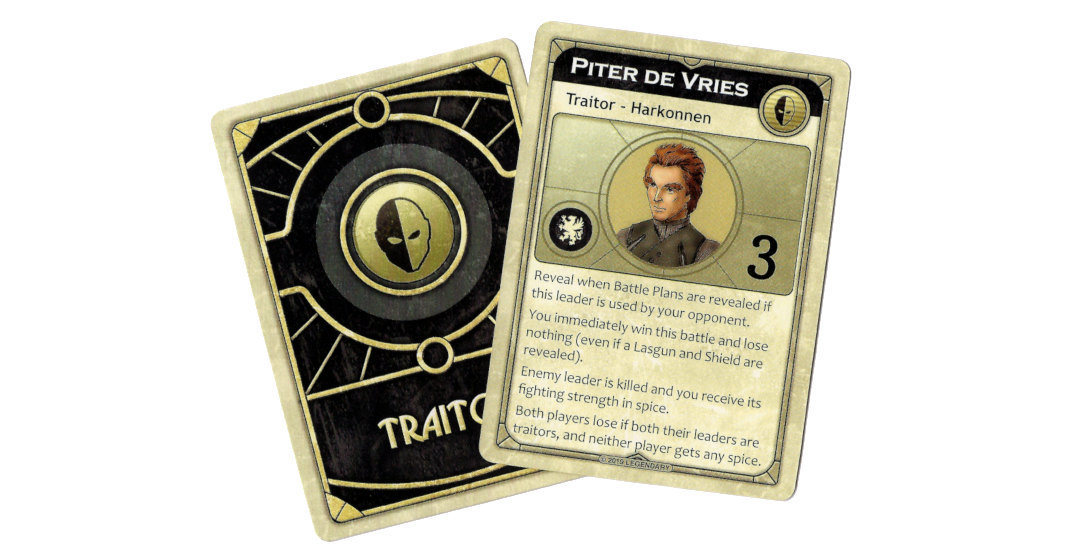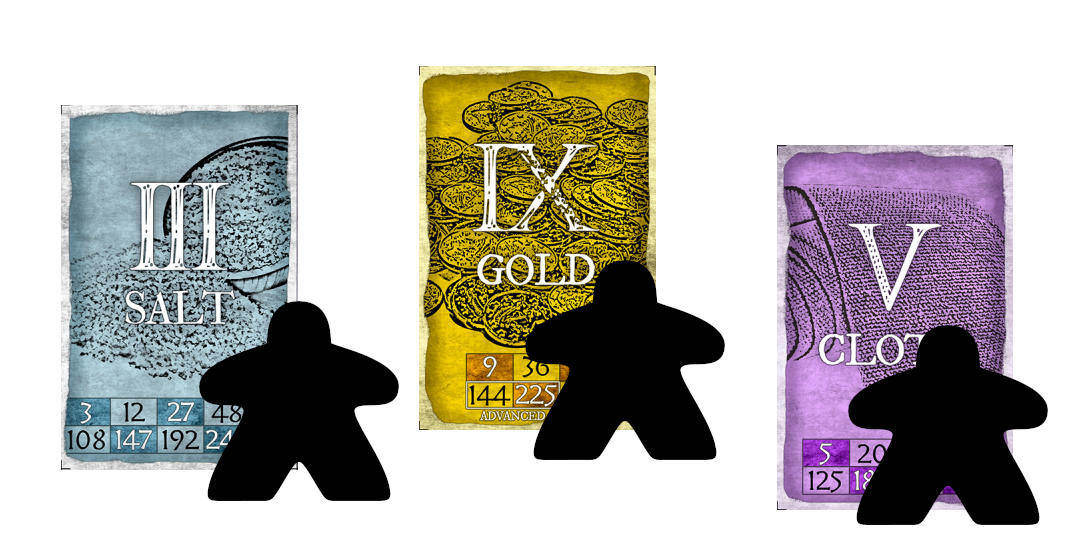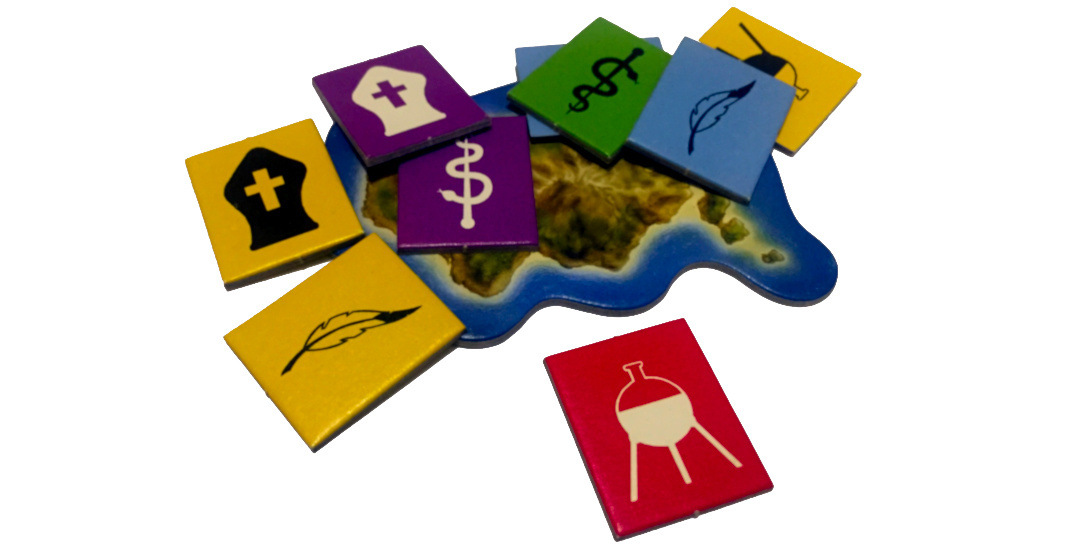
Not even in games can we take someone’s word for granted. Danger lurks in every corner and staunch allies may become dangerous enemies a couple turns down the line. What drives our fellow players to turn against us? In this guide, I’ll explain how backstabs work and why they are not as scary as they seem.
BACKSTABS ARE RARE
While treachery is one of the most well-known qualities of negotiation games, backstabs are rare. In fact, most games, no matter how mean-spirited, don’t feature this kind of treachery.
Backstabs are complex moves. In order for them to exist, games need to allow you to make a deal and then walk it back. Few games feature negotiation beyond “please don’t attack me” hand wringing and fewer allow you to be surprised by the charade. Even then, it’s rare for games to allow players render deals void or even give a reason to so.
For example, there are very few, if any backstabs in Dune. It’s true! Similarly, you can feel safe in your games of Genoa, Twilight Imperium, Blood Rage or Settlers of Catan. There are a couple tricks you can pull off, but you can play several matches of these games and not be backstabbed once. Even in Diplomacy, the game people most associate the move with, players can keep their alliances for hours or even the whole game!
Hence, don’t assume a backstab lies before every deal. Keep yourself open to the possibility, but also keep them in perspective. Should you plan your whole strategy around an event that happens perhaps twice in a game? Probably not.

The key here is to respect the possibility of betrayal, just like you would evaluate the odds of a dice roll or your bid in an auction. Chances are, that if you are careful, you won’t have anything to fear. Betrayal is a risk like any other. It can be planned for and mitigated.
FEAR IS WORSE
Common or not, backstabs are scary. It’s easy to overreact and end up in a worse position than if we hadn’t been on the watchout for treachery. This bad position is often harder to spot than a backstab would, and much more pernicious.
Negotiation is inherently beneficial to all parties involved. If you trade or make a deal with another player, you both gain an advantage. In ideal circumstances, you would be making deals all the time. But if safety is a concern, trades become harder and more demanding. You make it harder for yourself to gain advantages.
Imagine you don’t trust one of your rivals in a 4-player game. You fear their betrayal and think it safer to not deal with them, if possible. How much of an advantage are you giving up in that process?
First, you would be reducing your options by a third. You would only have two people to make deals with, not a particularly high number. And if one of them doesn’t like what you are offering or doesn’t need what you have, you are only left with one option. That’s a pretty severe handicap, which is why fear shouldn’t be your default attitude.

The second problem is leverage. By becoming wary of deals, you also become less likely to influence other people. You have less control over what other players do if you don’t work with them. Having a profitable relationship is, after all, a good incentive to keep being your ally.
In practise, this means backstabs need to be quite painful to outweigh the losses from fear. And they can be! Backstabs are dramatic movements that can turn a whole game around. But they happen at a single moment of time, while being friendly is a continuous advantage. Knowing when a dramatic upheaval is better than keeping the status quo is a vital skill in negotiation games.
COVER YOUR BACK
Still, there are ways to protect yourself from betrayal. The most important of them is simply being aware of the possibility and taking concrete steps to prevent it from happening. Don’t assume it exists. Think about your position on the board and whether you truly are in a position of weakness.
I often meet players who are afraid of possibilities that don’t exist, like cards that let you break a deal or teleport a bunch of troops into a base. Knowing the game well, reading the cards in the deck beforehand costs little and will let you know what to expect.you.
Remember you can only trust other players to pursue their own goals. Even the slimiest, most backstabbing, Erik-twicest scumbag won’t betray you if they don’t benefit from doing so. Don’t get me wrong, banishing your chemist cousin to a desert island is hilarious but I won’t do it if it doesn’t help me win.

Similarly, don’t forget you can talk with potential traitors. Ask them what you can do to keep being allies, make a deal or simply discourage them. Often, you can find a better solution just by talking with your opponent. Alternatively, chop the traitor in the back before he does.
IT’S A GAME
Still, many fear backstabs, not so much because they don’t like losing, but because treachery strikes them on an emotional level. Treachery is big and flashy. It may make us feel taken advantage of or personally targeted by the actions of others.
But it’s normal or even expected to fall into a trap or play poorly. Nobody is going to judge you because you made a mistake in a game. It’s part of the fun. Being backstabbed is no different than being surprised by an attack or scared while playing a horror game.
Similarly, being “mean” in a game doesn’t make you a bad person in real life nor does it mean you are being unsporting. As long as you are trying to win and not be rude, treachery is no less right than blocking a space on the board or buying a card someone else needed.
Treachery is part of games. And it can be a fun part, one that makes us laugh and creates memorable experiences. We should not be afraid of it, but embrace what it brings to the hobby.



